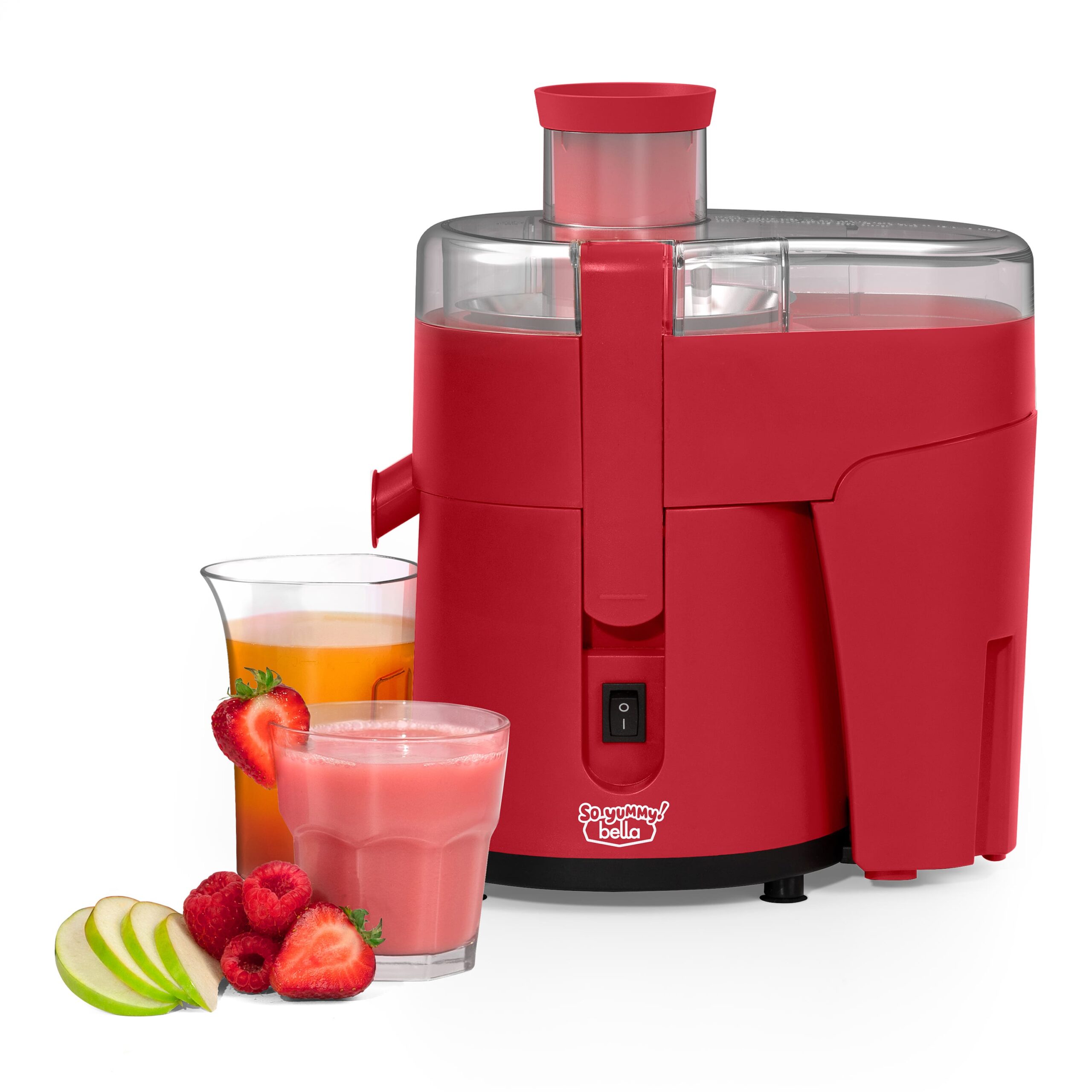Juicing: Healthy, But Costly
Juicing has become increasingly popular among health-conscious individuals due to its numerous health benefits. Mini juicers offer a convenient solution for incorporating fresh and nutritious juices into your daily routine. By consuming freshly juiced produce, you can boost your immune system, improve digestion, increase energy levels, and promote overall well-being.
If not approached wisely, though, juicing can be just as costly as it is nutritious. High-quality juicers can be super expensive — not to mention the cost of organic fruits and veggies. So, how can investing in a mini juicer help you save money in the long run?
Benefits of Mini Juicers
Overview of Mini Juicers and Their Features
Despite their smaller size, mini juicers still pack a punch when it comes to extracting juice from fruits and vegetables. They are designed to be user-friendly, and come with safety features and detachable parts that make cleaning a breeze. While they may not have all the bells and whistles of larger, more expensive juicers, mini juicers are generally more affordable, providing a convenient and cost-effective way to enjoy fresh and nutritious juices. They are a great option for beginners or occasional juicers who don’t require advanced features.
Comparing Mini Juicers to Regular Juicers
Pros and Cons of Mini Juicers
One of the main advantages of mini juicers is their portability. They are lightweight and easy to carry, making them ideal for travel or small kitchens. Mini juicers are often easier to clean compared to larger models. With fewer parts and a smaller footprint, they can be quickly disassembled and washed.
However, mini juicers do have some limitations. Due to their smaller size, they may have a lower juice yield compared to regular juicers. The smaller feed chute means that fruits and vegetables need to be cut into smaller pieces, which can be time-consuming. Mini juicers may also have less powerful motors, resulting in a slower juicing process.
Cost Comparison Between Mini Juicers and Regular Juicers
The price of mini juicers can vary depending on the brand and features, but they generally range from $30 to $100. On the other hand, regular juicers, especially high-end ones, can cost upwards of $200. If budget is a concern, opting for a mini juicer can save you a significant amount of money.
Mini juicers can also help reduce food waste. By juicing fruits and vegetables that are slightly overripe or nearing their expiration date, you can avoid throwing them away and make the most out of your produce. This can result in significant savings over time. Of course, proper maintenance and cleaning of your mini juicer will also prolong its lifespan, saving you from frequent replacements.
Tips for Juicing on a Budget
Budget-Friendly Ingredients for Juicing
Opting for budget-friendly ingredients can help you save more money in the long run. Seasonal fruits and vegetables, for example, are often more affordable and readily available. Look for deals at your local farmer’s market or grocery store, and consider purchasing in bulk to take advantage of lower prices. Don’t shy away from imperfect or overripe produce — as we touched upon earlier, they can be a great option for juicing and are often sold at a discounted price.
Meal Planning and Batch Juicing for Cost Savings
Allocate a specific day or time for batch juicing, where you can prepare larger quantities of juice and store them in airtight containers. This not only saves you time, but also ensures that you have a stock of fresh juice readily available whenever you need it. Consider incorporating leftover pulp from your juicing sessions into recipes, such as muffins, soups, or stews, to further reduce waste and stretch your budget.
Long-Term Savings With Mini Juicers
Calculating the Cost Savings of Using a Mini Juicer
Investing in a mini juicer can bring significant cost savings compared to buying pre-packaged juices or visiting juice bars regularly. On average, a bottle of freshly squeezed juice from a store can cost around $5, whereas the cost of fruits and vegetables to make your own juice is considerably lower.
Let’s do the math. Say you buy a mini juicer for $50 and spend $20 per week on fruits and vegetables. Over a year, you would spend approximately $1,040. Compared to purchasing pre-made juices, which can easily amount to $1,560 per year, the savings are evident. In just 11 months, the mini juicer would have paid for itself.
Ultimately, investing in a mini juicer not only brings cost savings on juices, but also provides opportunities for creative experimentation, reduced food waste, and improved health. By incorporating a mini juicer into your daily routine, you can enjoy the benefits of freshly squeezed juice while saving money.




